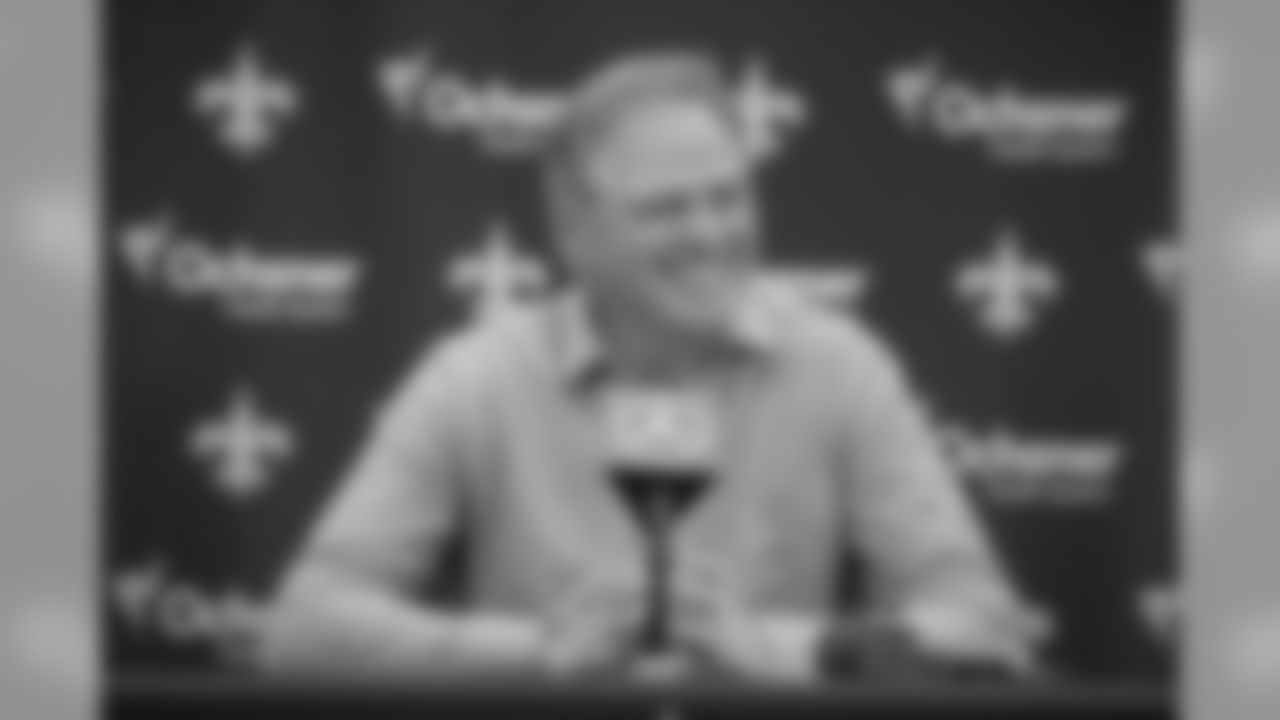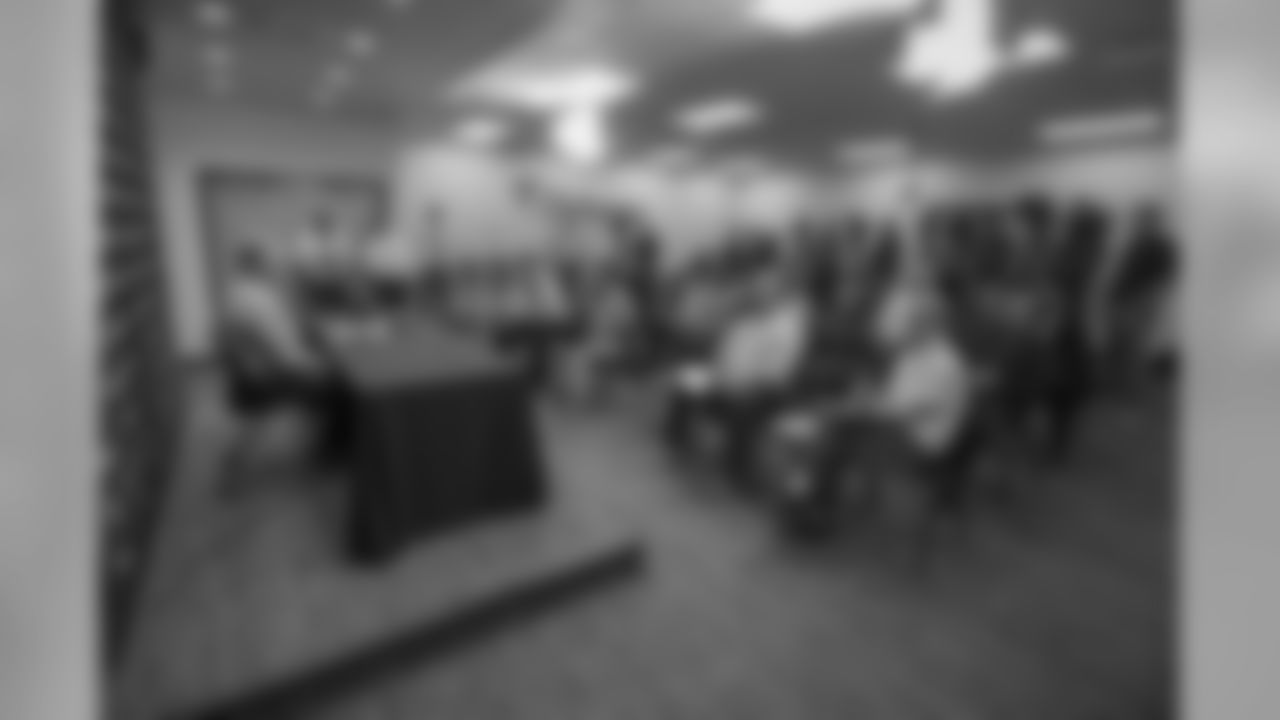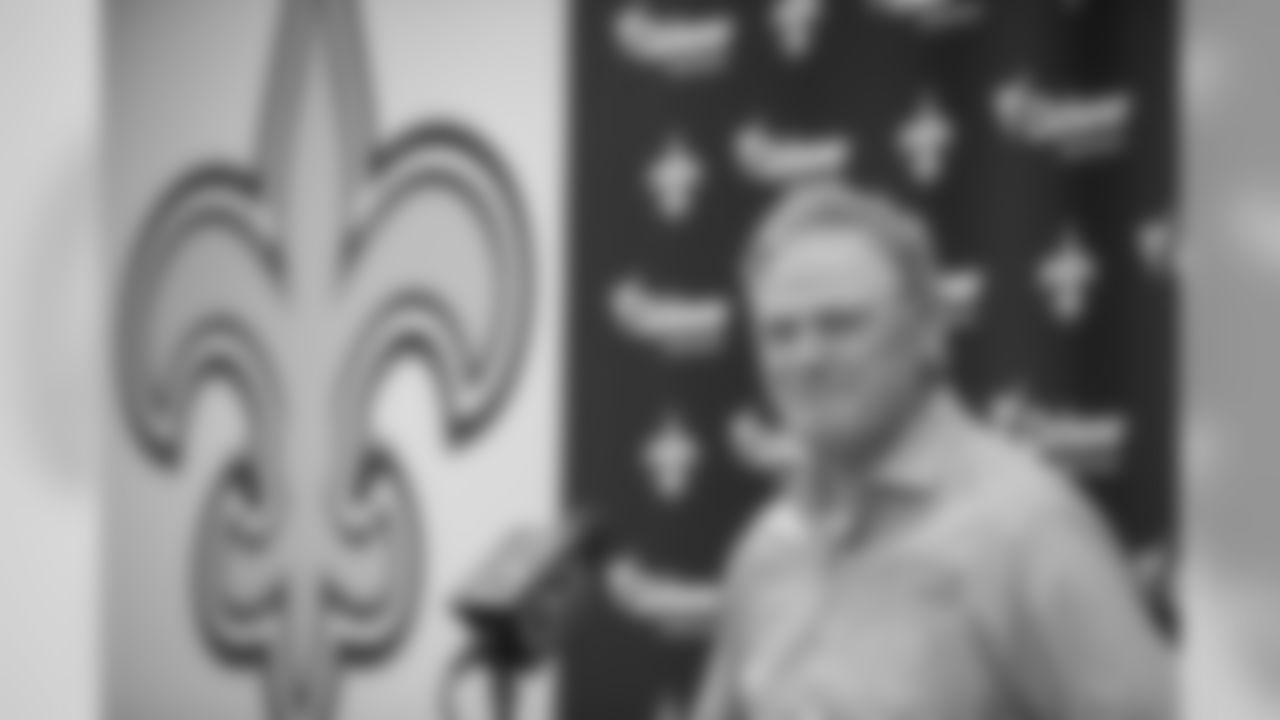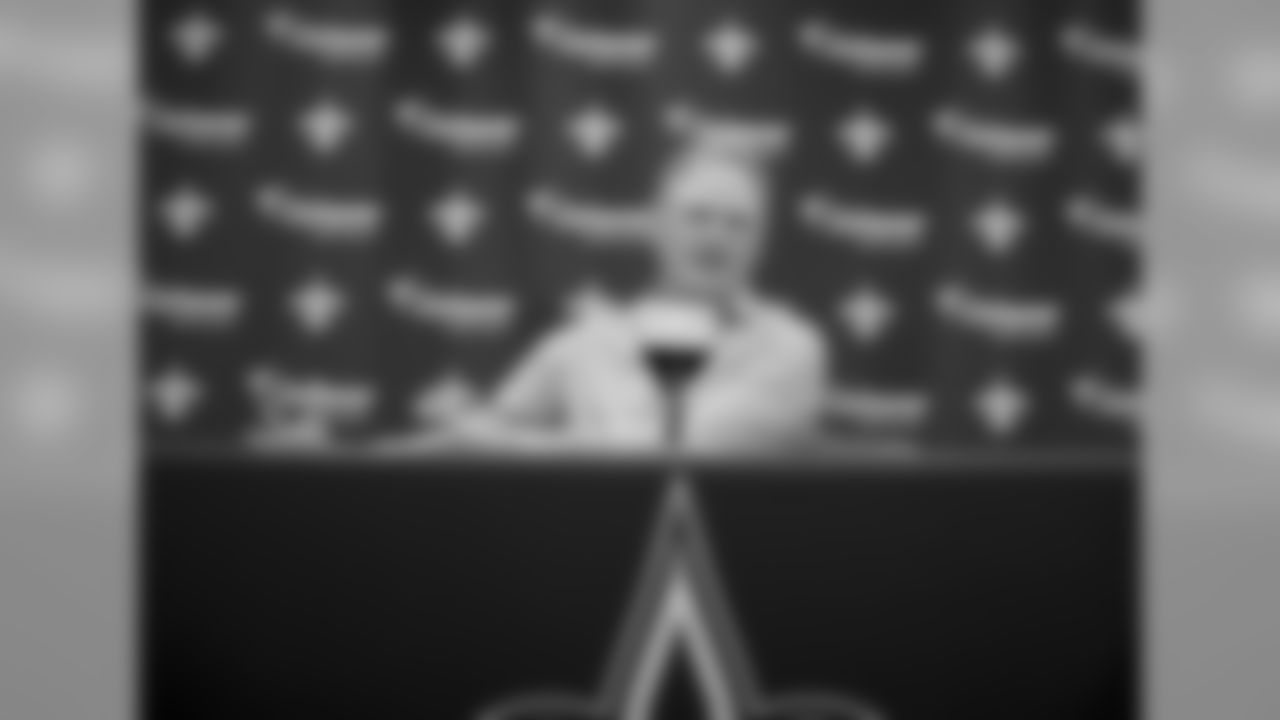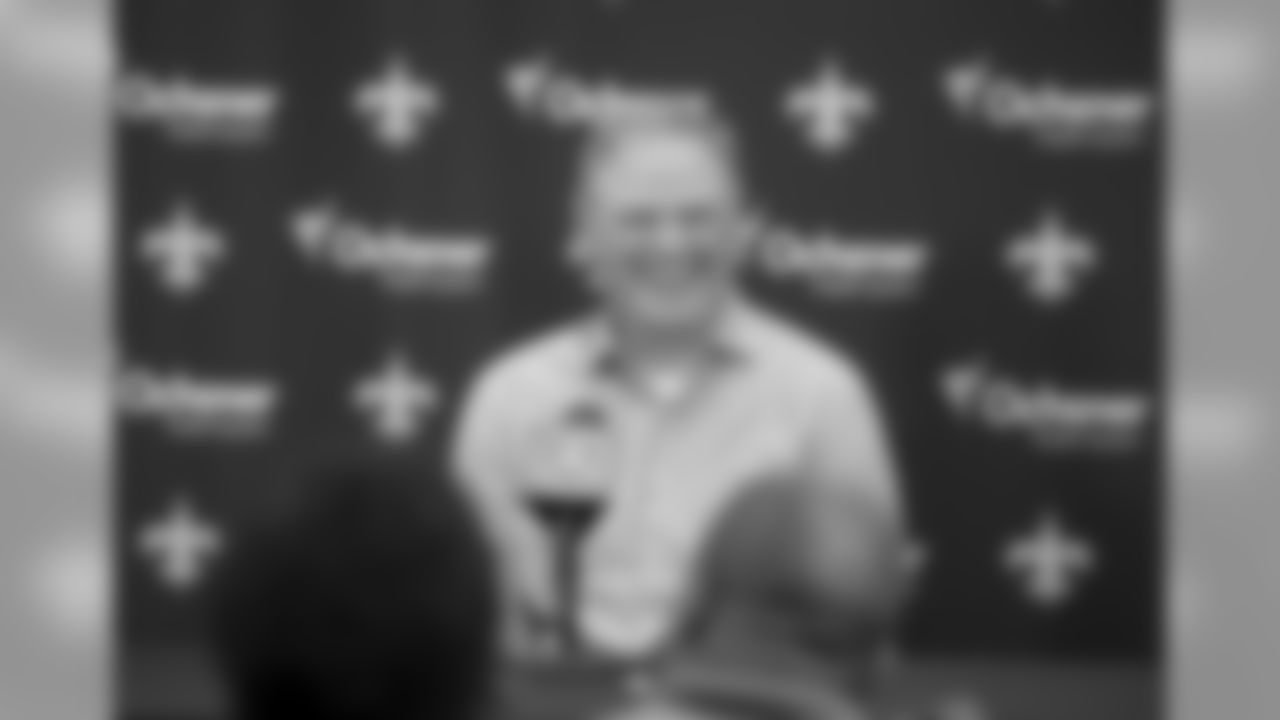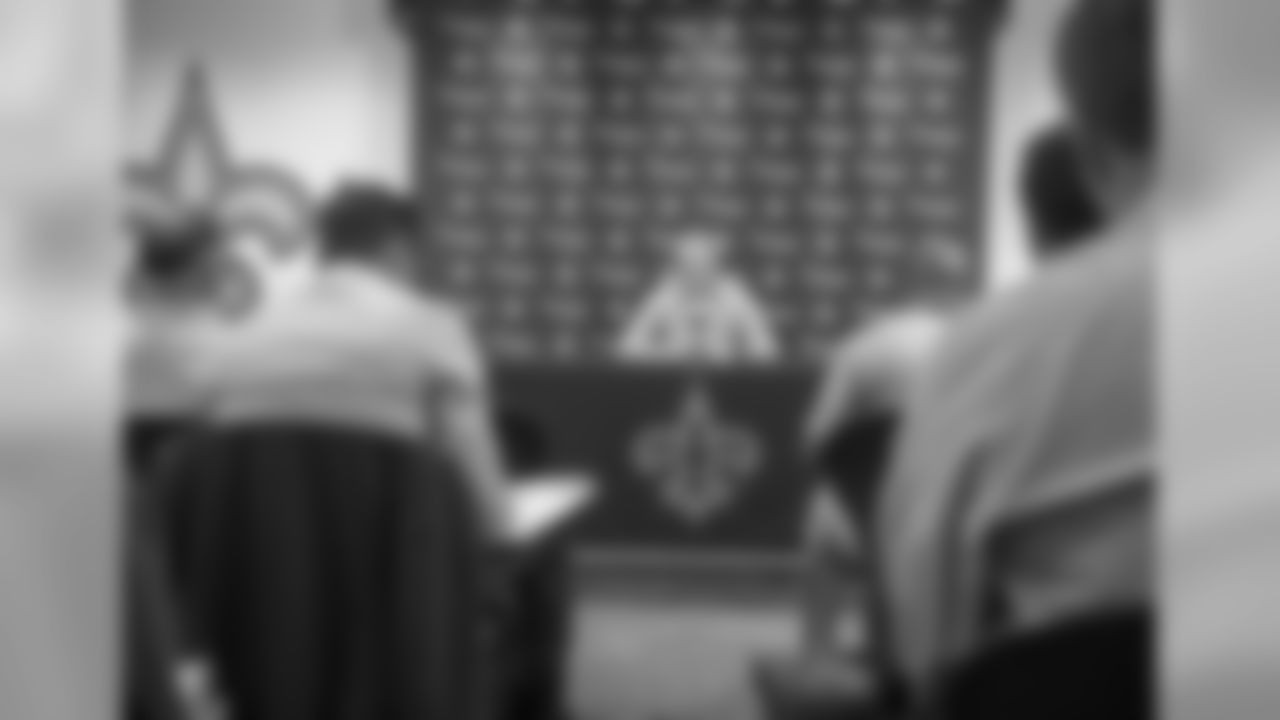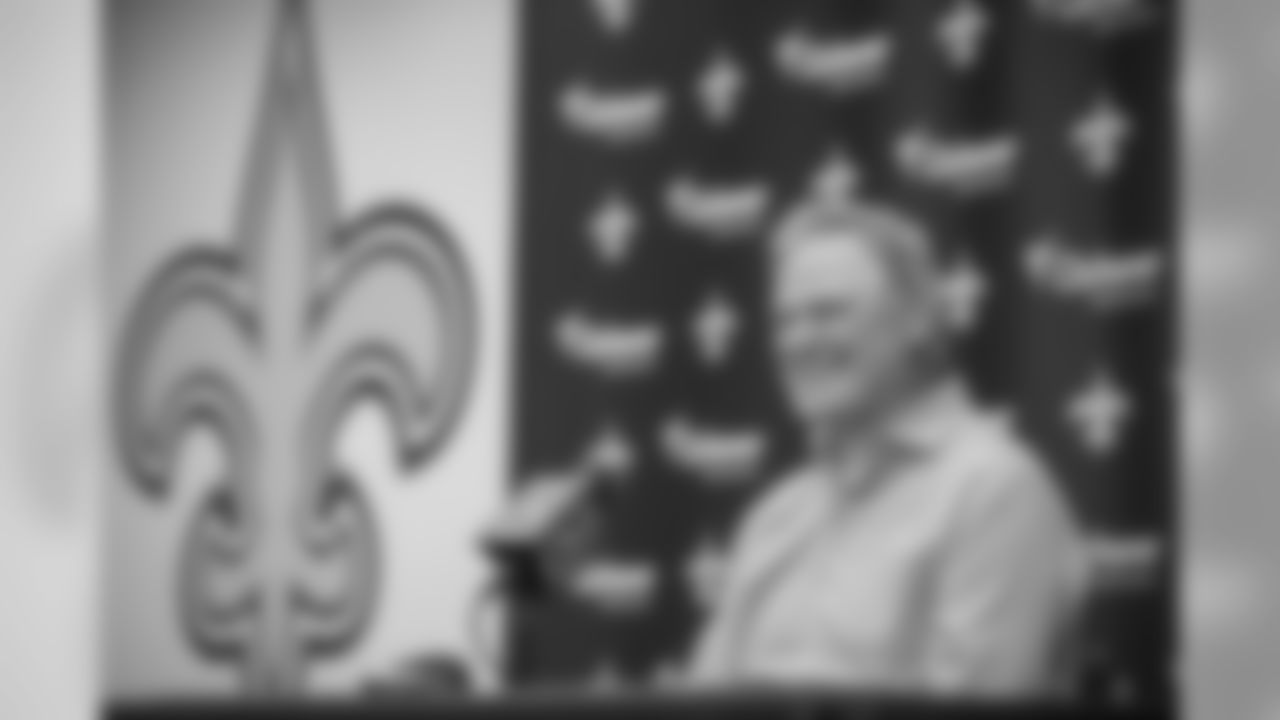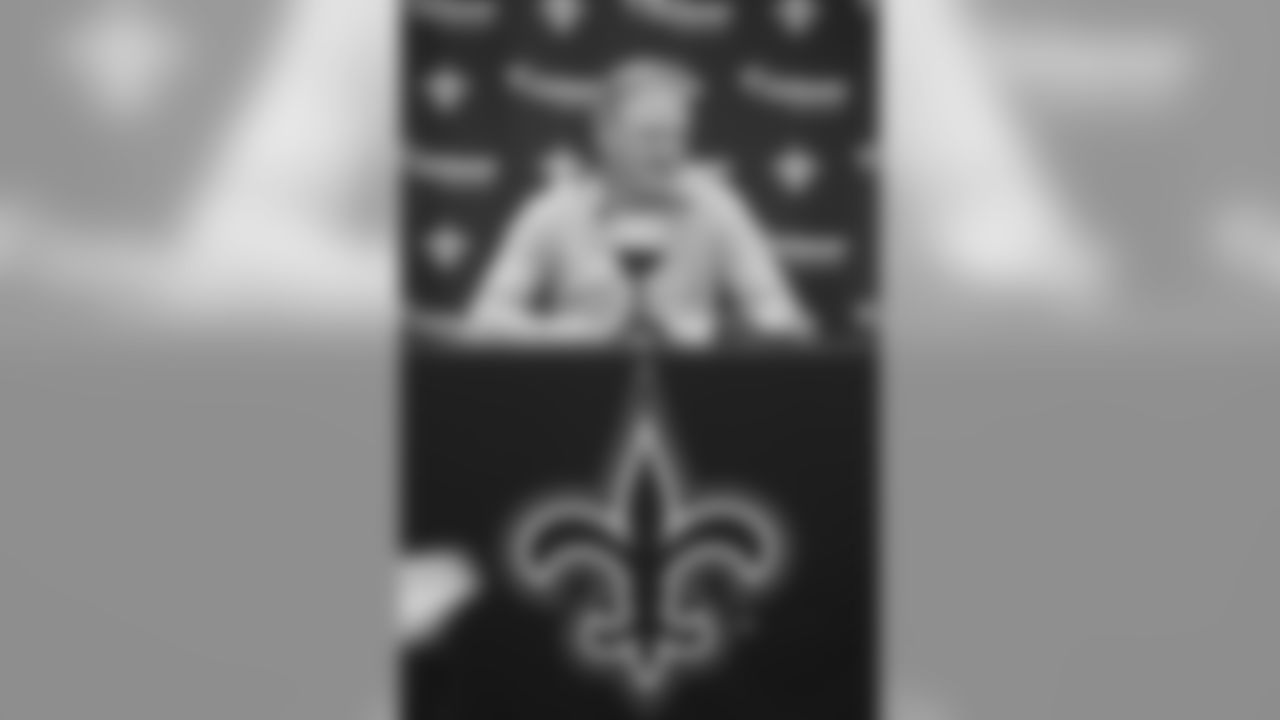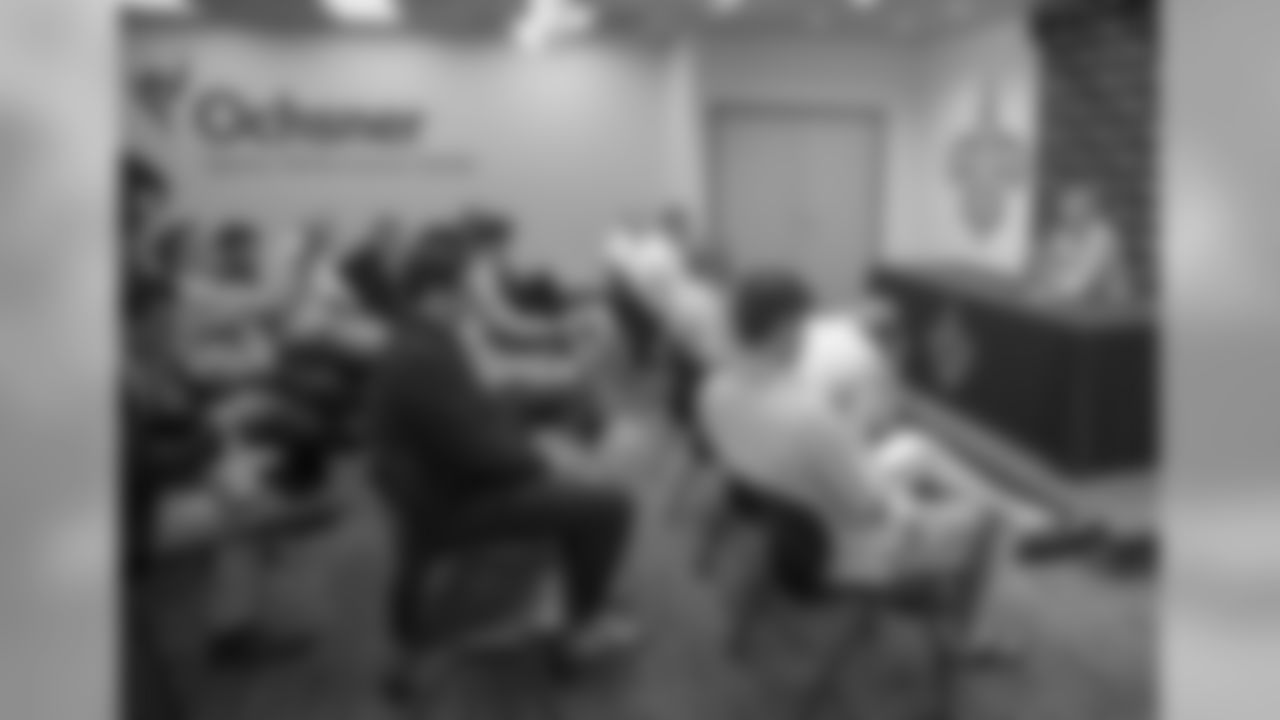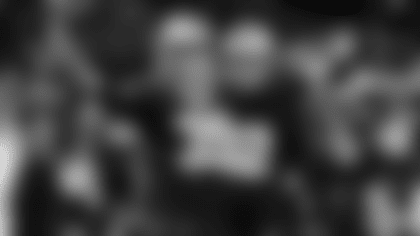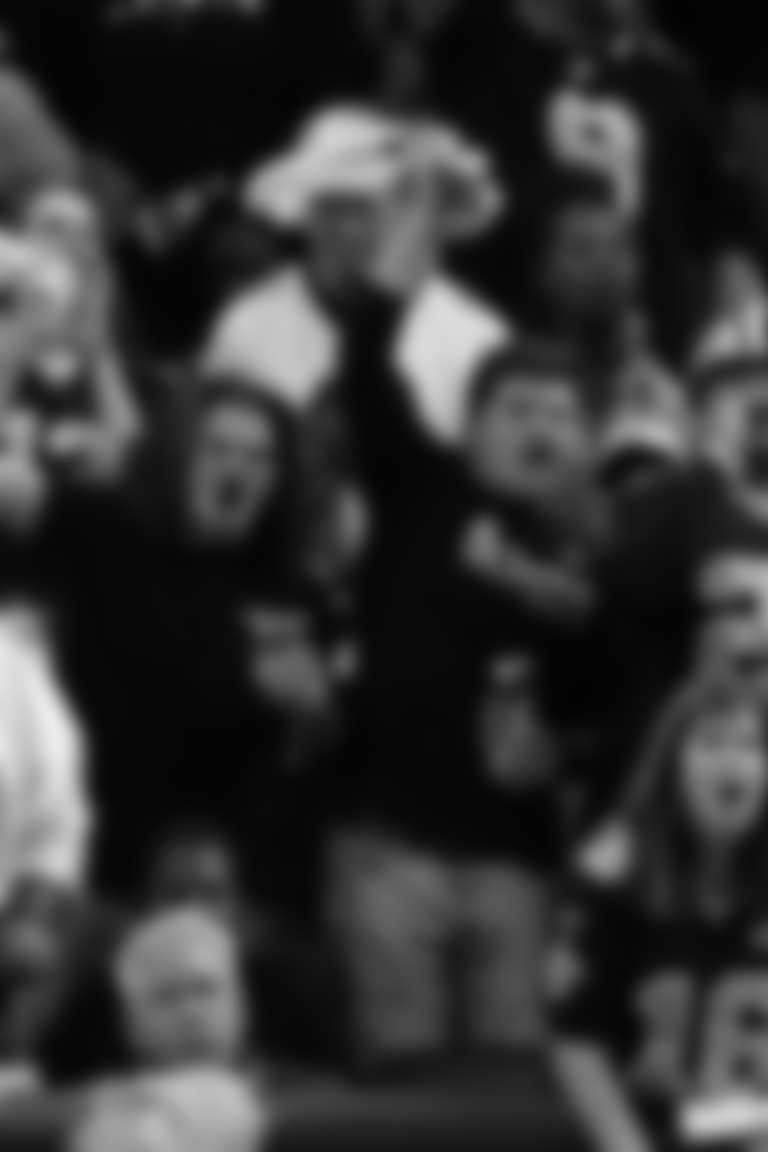Can you talk about the tough schedule early in the season?
"I kind of like the schedule, I'll be honest with you. Our opponents are predetermined. It's just a matter of when we play them. We received our bye week right in the middle of the season. I liked that. Those first four weeks are tough opponents, but we're going to have to play them anyway during the course of the year. It is not like you can avoid playing teams you perceive as being pretty good. I think in the first half, we're playing five of the eight, I think are playoff teams from a year ago. That is just the way it goes. We're looking forward to it. We're looking forward to playing the guys on the schedule that we have and we've got four prime time games, three of those are at home. I like that too. I think we like our schedule."
Did the teams' free agent signings fill most of the holes to allow you to pick the best available player in the draft?
"I think for the most part, yes. That is always our goal. We have a list of items we want to get accomplished in the offseason and I think for the most part we did that. We'll go into this draft and it is a little different when you do not have that first round pick. We are picking at 62, so it's a lot tougher to predict who's going to be available to you. But I like the position we're in."
The team has lost the season opener five straight seasons, how can the team start fast?
"I did not realize that until you reminded me. I think we are always focused on starting fast and we have had some teams that have played good games against us, as much as anything. We get a home game against a really tough opponent (on) Monday Night Football and we've had success in those (home) prime time games. Hopefully we'll have success this year."
What's the challenge in presenting future picks for a subsequent year with a club in a draft day trade?
"I think when you're trying to move up, you're making a lot of calls looking for a trade partner that views accumulating picks more valuable than making their pick that year and so it's just a matter of making a lot of calls and relying on relationships that you have and we've been able to find a trade partners on occasion, but there's been times when we haven't been able to as well."
How much trade assessment is done in these few days leading up to the draft to find maybe people who might be or is all of that done on the fly?
"I think that for the most part we do a lot of preliminary work, in the days leading up to the draft, talking to teams and who's interested in moving and look again, day one's the first round. The days leading up to that, you're really primarily talking about first round movement and then after the first round and the next morning, the next day you're talking about that day's rounds, so a lot of it has (been) done preliminary. But when you get on the clock, a lot of it is done then too, so it's both. At the end of the day it's both."
How many times are trades that are talked about successful in terms of coming to fruition, even if you really want it to happen?
"Yes, it's been less than 50% because look, you may have a trade partner and yet you don't see the value as eye to eye. I'd say it's less than 50%. I don't know that I could put a number on it, but it's probably not far from 50% but it's less than 50% and that's just my experience and our experience. I wouldn't say its leaguewide."
Is that generally guided by a guy like Alvin Kamara in 2017 being available and going after him?
"Yes, I think it's always guided by a targeted player. It is for us."
With the 62nd pick overall being your team's first pick do you feel there will be some guys on the board that fall to you at that selection?
"I think our view is it's a fairly deep draft and we're pretty confident that we're going to get a good player at 62. Yes."
Is it going to be restless Thursday not having a first round pick and facing a situation where it's tough to get into the first round of the draft with the ammunition you have?
"Probably. Potentially, we'll see when we get there, but it's pretty hard to go from 62 into the first round, but we'll see what happens."
Would you have to go into next year's picks to move higher into the second round of the draft?
"I don't know yet, we'll see, because you can trade picks and you can trade players too. I mean there's a few avenues to make movement, but again we're going to have to see somebody that we've got a target on and that we feel like we have to move in order to even contemplate that. But look, the honest truth is we've got less ammunition, less things to trade this year than we've had in the past, so that makes it a lot more difficult."
What are the strengths of this draft?
"I was just visiting with Jeff (Ireland) this morning about that. We were talking about our views on it and I think there are some pass rushers in this draft, probably more than what we ordinarily experience. I think the tight end group's pretty deep. Quarterbacks, I think's a deep group. I think those three, but there's other positions you can find wide receivers, I think in this class as well. I think in general we feel like it's (a) pretty deep draft."
Is the notion that the team only trades up and never back, is that accurate?
"I think the notion comes from history, right. We'd be open to trading back, if the timing's right and if the value's right. But it just hasn't happened very often."
How would you access Marcus Davenport's rookie season?
"I think he's made progress and he had a couple health things that slowed him down a little bit, but we like Marcus and we're looking for big things from him."
How do you review drafts since Jeff Ireland's joined the team?
"Yeah, I think Jeff (Ireland) does a great job. I think he and his college scouting staff have done a fantastic job for us over the years and he's certainly a big part of that."
With less picks this year, do you tend to be more aggressive to acquire more draft capital?
"I wouldn't say it's been more aggressive. I think part of that is we've got some preliminary work that we do, looking to see who's seeking trades, but then it gets right back to on draft day. Then all of a sudden you've got a target or somebody else has a target and they're making calls. But when you have less picks, you are going to get fewer calls."
What do you expect Thursday to be like?
"I don't know. Listen, we'll be watching I guess, but look, we'll be on the phones working the draft and managing the process."
Did you get any calls about veteran players on your roster?
"Yeah, I think I'd rather not comment on that. Every year you get some calls. I wouldn't say that there was anything out of the ordinary."
Are you and Sean (Payton) on the same page in the draft room or does it get chaotic at times?
"No, it's not chaotic. Most of the decision making and all (of) that is done by the time we get to the draft and it's just a matter of how had it falls. We've been on the same page for 13 years now. It'll work smoothly."
Would you say it's your philosophy to trade up or would you say that's how it's worked out in every individual case?
"It's a combination of both of that. Every year I say that we are open to trading back and trading forward and every year we trade forward, right? Obviously that's been our history and comes from finding a player that we really like and we target that we believe can help our team, a player that we have a vision for and going and getting them."
Was the roster just too deep for the draft picks that didn't make the roster last season such as Kamrin Moore and Natrell Jamerson?
"I think when you have a good roster and had success, it's harder for young players to make your team and yet there were some players we really liked a year ago. We were hoping to get them to the practice squad and then have them become contributing members to our team and somebody else claimed them. That is just the nature of the system. But it's harder for young players to make a team when you have a good roster."
Does that experience from last year where you did not end up having rooms on at those positions and lost the players on waivers alter the approach at all this year for your team with those mid-to-late round picks?
"No, I don't think so. I think when you have your players claimed it affirms that you made good picks."
Can you overanalyze a player in the draft process?
"Well, I don't look at it that way. I think all information is good and we're collecting information right up to the moment we pick and I hear that a lot, overanalyze, but I'm of the thought that you can't analyze enough, you've got to collect all the information you can get and make your best decision and I think we do a good job of that. I think our scouts and our coaches do a great job of that actually."
Does what you did in free agency this spring allow you to just target the best player available?
"Yes, I think that's always the goal in the offseason is to fill as many holes as possible so that you can put yourself in a position to just follow your board. But I've said this in the past, part of that is when you pick, you're going to have more than one player that's graded in the same area and when you do that, obviously you're going to look (at) the position between those players, but certainly that's the goal is to be able to pick the best player available to you."
Was the pre-draft approach the same despite not having a first round pick?
"Yes, the process was exactly the same. I think maybe when we finally got to the meetings, we probably spent a little less time talking about those guys at very top of the draft, but the process is exactly the same. Our guys evaluated every player. We talked about every player that is draftable for us and that hasn't changed."
In terms of the resources you spent, working players out or just bringing them in, that hasn't changed? "Yes. It didn't change. We went through the same process."
How much does it help you guys down the road four or five years from now when free agency is looming and you have to make a decision on a player with these reports even if you didn't pick the player?
"Yes, absolutely it does. When players become free agents or they get placed on the waiver wire, we go right to all the reports that we have in our system."
Let's say you're trying to call to make a trade or some of the GMs call you to make a trade and you don't know that person that well, how much does that change the dynamic? You don't know how they work, you don't know how they think, you haven't done deals with them before, you don't know them very well?
"It probably changes a little bit. I do not know that it changes a lot. You are still looking at what is the trade value? Does it help your team? What are you giving up? You are looking at it the same, but the length of the conversation may change a little bit. It is a good question."
If you don't know someone, you don't really know if they're going to pull a fast one or something like that?
"I don't look at it like that. Look, I have a lot of respect for the general managers and the personnel people in our league and they're all good people. I think it's hard to pull a fast one over anyone."
When you're in those negotiations and it's super-fast and you're calling about trading up, is there sort of a standard where everybody knows that X pick is going to cost Y and Z or do you get wide variance from some teams in what they expect for a particular pick? Is there a standard or is it all over the board? "We have these trade value charts, these point charts. We all pretty much use the same charts and look, we all know what the history of trading up eight picks in the first round is in the middle of the round. We have enough history and we have these trade value charts that I think very seldom is there a huge discrepancy in what is expected versus what is offered. But look, once you make that offer, there's tweaks back and forth. But I wouldn't say that there's a huge discrepancy generally."
When you are trying to move up in the draft to a slot, that is generally not the sticking point? Like everybody sort of knows the value at that point?
"It's always a negotiation because you're trying to get more than the value. But, I wouldn't say that there's a lot of outrageous requests or anything like that, if that's what you're implying."
What do you think the Draft would be like or how much more difficult would it be if it was much earlier, like in March or February?
"I don't think that it'd be a lot more difficult myself. I haven't thought a lot about it because it's always been around this time of year. I haven't thought a lot about it. There's a debate of well about whether is it better before or after free agency and I think that is probably just dependent upon who you're asking."
A lot of news was made last week about Oakland sending scouts home and things like that. When you have strong personalities, people have spent their lives scouting, is part of it managing people's opinions from your perspective and knowing which voices to listen to and who push back on things like that?
"No, I wouldn't say it that way. We value the opinions of our scouts and coaches and anyone who's been a part of the evaluation process. I like having them available during the draft because some of these guys have more firsthand experience than the rest of us. I like strong opinions. I think Sean (Payton) would say the same thing. We want strong opinions. Otherwise, if we don't have strong opinions and dissenting opinions then what's the point of having all the opinions right?
Is there anything left to be done in free agency?
"Yes, I think there's still some players out there that they can help us and we're going to continue to look at that. There'll be some guys. Typically, after the draft, there's a few guys that that become available. We're going to look at that all the way up and through the (off)season."
How much does that factor into when it's time to select a player and you say we've got this other guy we could probably go after?
"I don't think it comes into play very often. Just because when they're free agents, they have other options. I wouldn't say that comes into play very often."
What's the situation pre-draft process? You have your board up and then coaches get involved. They may have a strong opinion. From your point of view, what's it like just trying to mesh all that together?
"We've had meetings with our coaches and our scouts in one room and so that process has already taken place. We value our coaches' opinions on these players. They're the guys that are going to have to coach them and they have a vision for how they can be used in our defensive, offensive and special teams systems. We value their opinion.
They're the part of the process."
How valuable is the connection with say a head coach in college and that you trust because some of them will tell you great things about no matter who it is and some of them will give you a real strong opinion?
"That's the advantage of having a lot of coaches and scouts involved in the process. They all have relationships and different relationships with different coaches that they've worked with or been around and have built relationships (with) over the years. There's a lot of valuable information that we get through those relationships."
What are maybe some must positions you see for your team?
I don't know that I want to disclose that right now before the draft."
Is receiver one of the positions you guys are willing to trade up for or are you possibly looking to bring back Dez Bryant perhaps?
"I don't think I want to comment on that either. I like our group of receivers that. We have a good combination of veteran guys. Mike Thomas, who I consider a veteran now, who is one of the better receivers in our league and Ted Ginn (Jr.). We have some young guys that we like their development, Tre'quan Smith, Keith Kirkwood and Austin Carr. But, we're always looking to improve, always looking to get better and, we'll see what happens over the course of this week and the coming weeks."
You mentioned Mike Thomas, he's going into the final year of his deal. Any talks or movement there?
"I'm not going to discuss that."
It came out this weekend that Benjamin Watson might want to continue playing. Did that surprise you?
A little bit. Ben has been a real good player for a lot of years. He's a great guy for any team, for our team in the locker room. I was a little surprised with that. Yes."
Do you think there could be a fit here for him?
"We'll just have to wait and see what happens?"
Is it important for you or for his camp to get that done before the season?
"I'm not going to comment on the state of any contract work?"
When the area scouts accumulate all this college player information, how does that work? Do they give it to Jeff Ireland and then he evaluates the final thing, puts everything together and kind of accumulates all of this together?
"The area scouts work for Jeff directly. College area scouts work for Jeff directly and they put together reports. We have meetings; we have a lot of discussion. They present the players. Typically we're going to have three or four opinions on every player in this draft so everyone's going to get the express those. We talked about differences that we have and we tried to resolve those differences. The same thing happens with pro players on the pro player side. That's Terry's (Fontenot) purview there. He's got a pro scouting staff that does the same thing for players that are going to be free agents and players in our league."
So Terry (Fontenot) is more involved with the pro side?
"Yes, Terry is the Pro Personnel Director."
For the last couple years was he involved with college players?
"We do have our, for us, our pro staff does do some cross check work on college players. We take advantage of their skill set. But, Terry is the Pro Personnel Director."
You said the process is the same, but the fact that the majority of your picks are in the last three rounds, do you put any extra attention into players you expect to find there in this draft just knowing that that's kind of where you'll be working?
"Clearly we have to pay attention to that, but we've had picks in the fifth, sixth, seventh round every year. I wouldn't say it's a lot different. We're studying every player, every draftable player that's available this year. Hopefully, we'll get some guys. I know we'll get some guys that can help us."
Should we show up on Thursday to cover the first round?
"Yes, you should show up. Yes, absolutely. We'll be here."
What are your thoughts on the Pelicans front office?
"That's for a different time I think"
How do you plan to handle the fifth-year options with (Sheldon) Rankins and (Eli) Apple on their rookie contracts?
"We'll let you guys know when we make those decisions."
How tough is it though with (Sheldon) Rankins just because of his injury?
"Again, I would rather not comment on that right now."
Is there anything you can say about his progress?
"I think we're pleased with his progress.
On that note, how has Patrick Robinson been recovering?
"I'd rather not discuss the medical condition of these guys for the most part. You guys will get a good look at them when we get to the OTA's."
New Orleans Saints Executive Vice President/General Manager Mickey Loomis addresses the media on Monday, April 22, 2019 for his annual pre-draft press conference.
